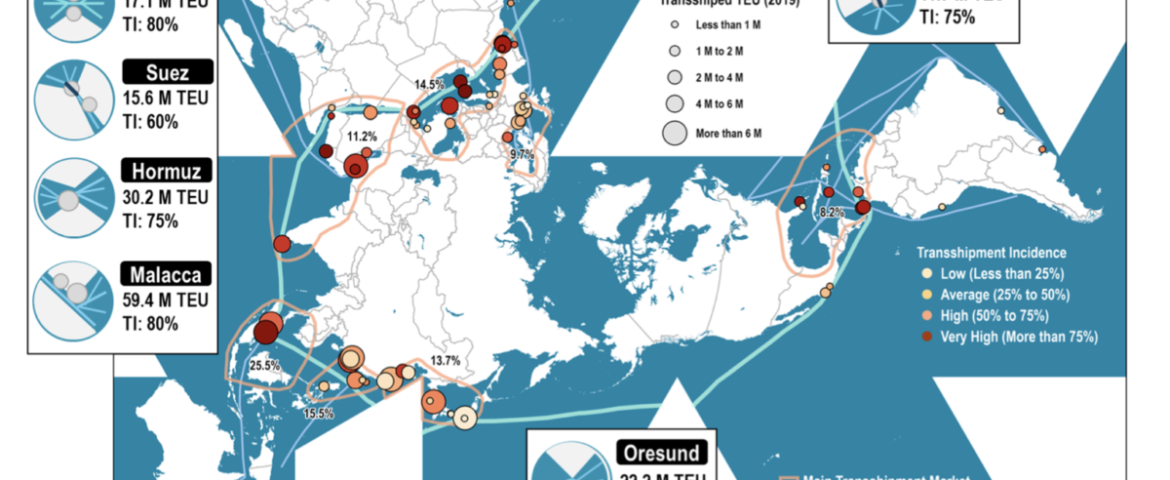Maritime shipping lines and global terminal operators have benefited from economies of scale to expand geographically and functionally their infrastructure, leading to a corporatized network. Terminal operators are key asset managers seeking value creation by expanding the global maritime container terminal infrastructure network. While corporatization has systematically ensured that terminal capacity was created to accommodate the rise in global trade volumes, the network hit its boundaries when confronted with COVID-19 induced global supply chain disruptions.
In their latest port study, published in Journal of International Business Policy, PortEconomics members Theo Notteboom and Jean-Paul Rodrigue provide a better understanding of the importance of infrastructure and observed corporatization as a framework for explaining economic processes, notably when transport infrastructures are extensive and capital-intensive.
The structure of the global container shipping network is analyzed to unveil the realities of liner service networks operated by shipping lines, and the market structure and consolidation in container shipping and terminal operations. The discussion on the corporatization of the global maritime infrastructure network for container handling is embedded in international business literature.
This study extracts the main implications of the current structure and governance of the global maritime infrastructure network for international business policy, with a particular focus on the current market structure and network resilience.












